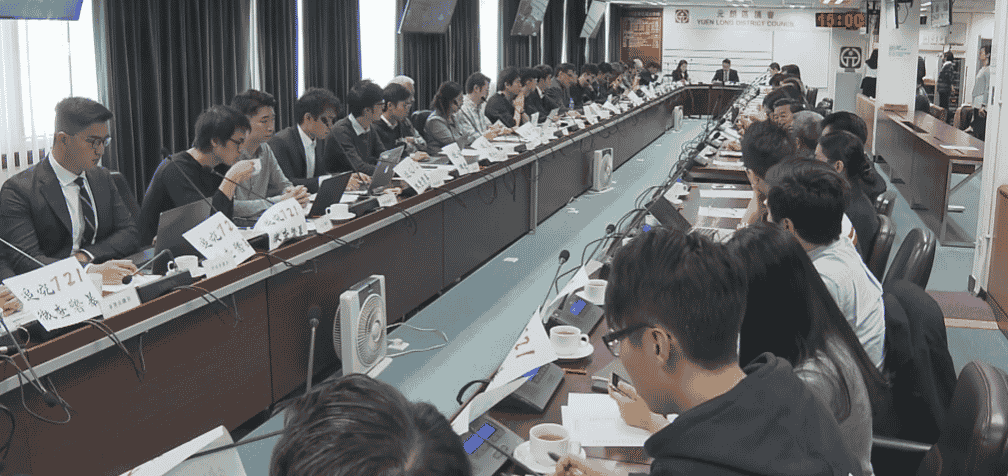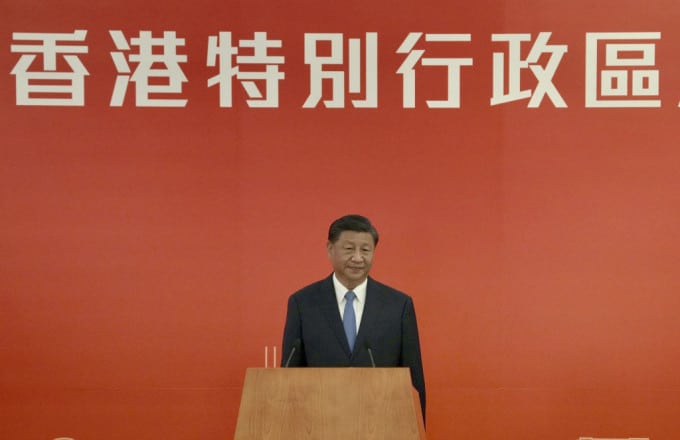More than 70% of voters voted for public opinion representatives, affirming the value of speaking out within the system. The dust of the election has settled, and the factional struggle has not ceased. The militant faction is clamoring for supervision and rectification, and the establishment faction is also seeking a comeback. Multiple forces are waiting for the opportunity to move. Regional issues must balance the interests of all parties and not waste time on ideological disputes. The democrats have taken the lead in district councils, and some are worried that the culture of protest will bring down district administration. In fact, political party rotation is nothing new in grassroots parliaments, and it is not difficult for the civil affairs system to follow the book. Conservatism and progress are eternal themes. It would not be a bad thing if the district councils, with unprecedented recognition, could correct the shortcomings of the system and implement regional empowerment.
Two endings in Wan Chai and Kwai Tsing
From 2004 to 2007, Wan Chai District was a case in point for reforming the District Council. After the July 1st effect of the anti-Article 23 legislation, the democrats gained victory and gained dominance in the district. At that time, the Wan Chai Street redevelopment project brought about heated discussions about conservation and development. The Wan Chai District Council established a task force, held street seminars, and published a policy position paper on urban renewal to align civil society with the system. District councils generally only reflect the community's opinions on public facilities. Originally, they could also proactively involve residents, professionals and civil society organizations in planning and include stakeholders in policy formulation. Although the pro-democracy camp was defeated in the next election, the conservation sentiment it aroused spread to Queen's Pier and XSR Cai Yuen Estate, and the intensifying street protests were a thing of the past.
Kwai Tsing District, which has been dominated by the pro-democracy camp for nearly two decades since the 1980s, is a different story. At that time, he had not yet returned, and the future was a hot issue. Members tried to implant a sense of citizenship into the community, but many activities were ignored. Without earth-shaking reforms, solid regional work has suffered. District councilors worked tirelessly to interpret letters, organize tour groups, distribute welfare products, and arrange health examinations for residents. The new generation often criticizes carnival-style family activities as having no real effect, and the patronage politics represented by "Snake Zhai Biscuit and Rice Noodles" are only to win over people's hearts. However, these are the realities of grassroots democracy. Who said that a regional network maintained by neighbor relationships is not a reflection of community building?
Empowerment and supervision complement each other
Due to the limited positioning of the advisory organization, the district councils were considered to have insufficient powers and responsibilities and were ineffective. However, the experience of the above two districts shows that there is room for innovation within the system, although the specifics cannot be separated from the district conditions. Talking about empowerment must be supplemented by corresponding supervision. Corruption and fraud, such as abuse of power and misappropriation of public funds, occur every term, and the personal conduct of some members of Congress is less than ideal. Various community funding plans are constantly controversial, with questions about benefit transfer and occasionally out of touch with public opinion. Are district councils ready to use greater public power? Council governance has attracted much attention. There have been long-term proposals for abolishing the authorized vote system, making meeting minutes public, allowing the public to attend or live broadcast meetings, and improving the interest declaration mechanism. This current session of the District Council is an opportunity to improve the public supervision system.
The district councils were fully politicized, and the democrats benefited from the winner-take-all voting system and won all the seats. However, the votes obtained by the pan-democratic establishment did not change the golden ratio of June 4th. Hong Kong citizens have gone through many vicissitudes, but their voting preferences have remained unchanged. The return of votes reflects that the yellow and blue camps have not won recognition, but have only deepened their positions. Each district has one public opinion representative, but the opinions of the citizens are still 64-6, and district work inevitably becomes a flashpoint for conflicts. There is no end to the confrontation between yellow and blue. Instead of dwelling on verbal abuse, it is better to recognize that each side has its supporters, understand the other's point of view, narrow the differences, and learn to coexist with people of different political views.
Ray Poon
Co-Convenor (Research), Path of Democracy



